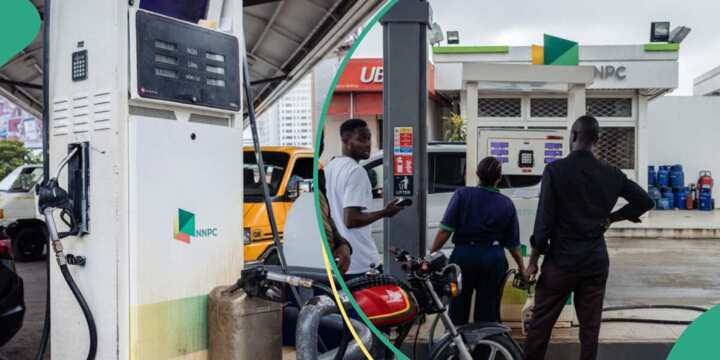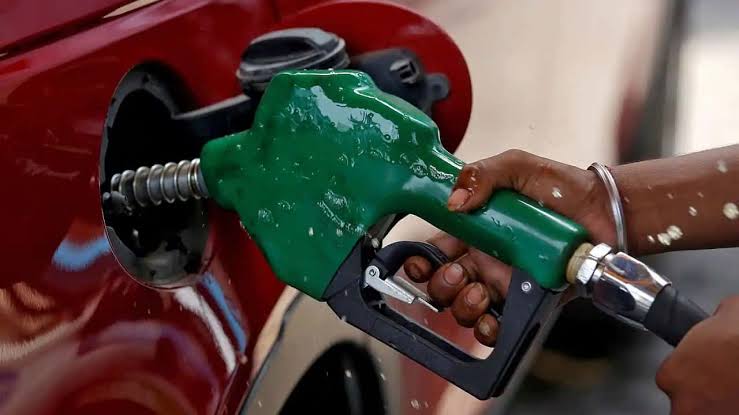The Nigerian National Petroleum Company Limited (NNPC Ltd) has made significant announcements regarding the sale of petrol sourced from the Dangote Refinery, shedding light on the dynamics of fuel pricing in Nigeria. These developments come as the country navigates its energy supply challenges, transitioning from an import-reliant system to utilizing locally refined petroleum products.
The NNPC has confirmed that petrol sourced from the Dangote Refinery will be sold at N950 per litre in Lagos, N1,019 per litre in Borno, and varying prices in other states based on proximity to Lagos, where the refinery is located. In a statement released early Monday morning, the NNPC shared the estimated petrol prices for its retail stations across the country, emphasizing that these prices are determined by market forces and are not set by the government. This change is a result of the provisions of the Petroleum Industry Act (PIA), which allows for a more deregulated and competitive petroleum market in Nigeria.
The pump prices of petrol sourced from the Dangote Refinery will be as follows: N950.22 in Lagos, N960.22 in Oyo, N980.22 in Rivers, N992.22 in Abuja, N999.22 in Kaduna, Kano, and Sokoto, and N1,019 in Borno. These prices reflect the September 2024 pricing template released by the NNPC and represent the first significant wave of locally refined petrol from the much-anticipated Dangote Refinery.
A detailed breakdown of the pricing structure shows that the final cost to NNPC Ltd from the Dangote Refinery is N898.78 per litre. Additional costs include a distribution fee of N15 per litre in Lagos, an inspection fee of N0.97, and an NMDPRA (Nigerian Midstream and Downstream Petroleum Regulatory Authority) fee of N8.99. The NNPC’s profit margin is N26.48 per litre, bringing the total estimated pump price in Lagos to N950.22.
This marks a significant shift in Nigeria’s petrol supply landscape. Prior to the Dangote Refinery’s operations, the country was heavily dependent on petrol imports, mainly managed by the NNPC, which purchased products from international markets. This reliance on imports placed immense pressure on Nigeria’s foreign exchange reserves and contributed to the depreciation of the naira. It also left the nation vulnerable to international market fluctuations, leading to periodic fuel shortages and allegations of fraud and importation of substandard products.
The NNPC’s decision to source petrol from the Dangote Refinery is expected to alleviate some of these challenges. By refining petrol domestically, Nigeria is set to reduce its dependence on imported fuel, ensuring greater availability of petrol for local consumption. However, oil and gas experts have cautioned that Nigerians should not expect a significant reduction in fuel prices solely because the petrol is refined locally. Market forces will continue to play a critical role in determining the price of petrol, and the local price will still be influenced by global crude oil prices, exchange rates, and production costs.

The Dangote Refinery, owned by Africa’s richest man, Aliko Dangote, has a refining capacity of 650,000 barrels per day, making it the largest single-train refinery in the world. The commencement of petrol production at the refinery is seen as a major milestone for Nigeria’s energy sector, which has struggled for years with inefficient and underutilized refineries. The Dangote Refinery is expected to produce enough petrol to meet Nigeria’s domestic demand, with the potential to export surplus production to neighboring countries in West Africa.
Despite these promising developments, the transition to local refining will not happen overnight. The NNPC has indicated that it will still need to import some petrol to supplement the volume produced by the Dangote Refinery. This is because the refinery is still ramping up production capacity, and it may take some time before it can fully meet the country’s demand for petrol. Additionally, NNPC noted that while petrol production at the Dangote Refinery has commenced, the logistical challenges of transporting the product across the country could lead to some delays in distribution.
For instance, petrol transported from the refinery to filling stations in Lagos might be available the same day, but stations further afield, such as those in Kano or Calabar, may experience longer delays due to the complexities of the supply chain. Nonetheless, NNPC remains optimistic that the long queues and fuel shortages that have plagued Nigeria in recent months will begin to subside as more petrol becomes available in the coming days.
A key aspect of the NNPC’s agreement with the Dangote Refinery is the method of payment for the petrol supplied. In its statement, the NNPC confirmed that for September 2024, it will be paying the Dangote Refinery in US dollars for the petrol it has procured. This is because the crude oil used to produce the petrol was paid for in dollars. However, starting from October 1, 2024, transactions between NNPC and the Dangote Refinery will be conducted in naira, following a directive from President Bola Tinubu. This shift is expected to ease the pressure on Nigeria’s foreign exchange reserves, as payments for both crude oil and refined petrol will be made in the local currency.
The NNPC has also addressed concerns about transparency and fairness in its dealings with the Dangote Refinery. There have been allegations that NNPC has been frustrating the take-off of the refinery, but these claims were firmly dismissed by the NNPC’s Executive Vice President, Downstream, Mr. Dapo Olusegun. Olusegun clarified that the NNPC has a 7.25% equity stake in the Dangote Refinery, and as a shareholder, it has no incentive to hinder the refinery’s operations. On the contrary, he explained, the NNPC has gone out of its way to support the refinery and ensure its successful launch.
He further explained that the delays in the delivery of crude oil to the Dangote Refinery were not due to any malfeasance or deliberate obstruction by the NNPC but were simply a result of standard business practices. Crude oil transactions, like any other business dealings, are governed by terms and conditions, and the NNPC is obligated to ensure that all contractual obligations are met before releasing cargoes of crude oil. Olusegun emphasized that these are routine business processes and that there is no personal or corporate animosity between the NNPC and Dangote Refinery.
The transition to local refining, supported by the PIA, also signifies a broader shift in the role of the NNPC. The company is no longer reliant on government subsidies or bailouts, and its operations are now governed by the same market principles as any other business. This means that if the NNPC experiences financial difficulties, the government is no longer legally permitted to intervene. This newfound independence is part of a broader effort to transform the NNPC into a commercially viable entity that competes on the global stage.

In terms of pricing, Olusegun reiterated that the NNPC, like other businesses such as Total or Shell, does not have the authority to set fuel prices. Instead, prices are determined by market forces, particularly the global price of Brent crude oil. If the price of Brent increases, so will the price of petrol, and vice versa. This market-driven approach to pricing reflects the reforms introduced by the PIA, which aim to create a more transparent and competitive petroleum sector in Nigeria.
Looking ahead, the NNPC and Dangote Refinery have agreed to a naira-for-crude and naira-for-product arrangement starting in October 2024. Under this arrangement, the NNPC will supply Dangote Refinery with 385,000 barrels of crude oil per day, and in return, the refinery will sell its petrol to the NNPC in naira. This system is expected to provide stability in the pricing of petrol by reducing the impact of foreign exchange volatility on the cost of crude oil and refined products.
In conclusion, the NNPC’s partnership with the Dangote Refinery marks a significant turning point in Nigeria’s petroleum sector. While the transition to local refining will take time, the long-term benefits of this shift are clear: reduced dependence on imported fuel, greater transparency in fuel pricing, and increased availability of petrol for Nigerian consumers. However, the pricing of petrol will continue to be influenced by global market forces, and Nigerians should not expect immediate price reductions. Nonetheless, the Dangote Refinery’s production capacity, coupled with NNPC’s efforts to streamline distribution, offers hope for a more stable and sustainable fuel supply in the near future.
SOURCES
- https://www.premiumtimesng.com/news/headlines/735011-updated-nnpc-to-sell-dangote-petrol-in-lagos-for-n950-n992-in-abuja.html
- https://www.arise.tv/n950-litre-in-lagos-nnpc-reveals-pump-price-of-dangote-petrol-across-nigeria-to-sell-at-n992-litre-in-abuja-n1019-in-borno/#google_vignette




